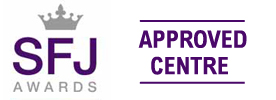Giving Evidence
There are several issues that relate to the giving of evidence in court. The first is that a good quality statement of evidence, which leaves counsel in no doubt as to the strength and detail of that witness's evidence, is a guarantee that the giving of evidence by the professional investigator giving that evidence will not be problematical. Such a statement from all witnesses may preclude the need for a trial at all. So the general rule is: a properly prepared and presented case may remove the need for testimony, and therefore court preparation starts the moment the investigation begins.
That said, there are certain practices which should be considered when actually giving oral testimony. They are:
- The purpose of giving evidence is to make sure that those hearing the evidence fully understand everything about the case that the witness knows. It is stressed that the witness wants to ensure that the jury, judge or magistrate has as full a comprehension of the case as that witness. Speaking clearly includes ensuring that the court hears the oath being stated. Read the oath or affirmation clearly, but without dramatic effect.
- Know the correct form of address for the person/s hearing the case: High Court judges (red robes) are addressed 'My Lord'; Crown Court judges 'Your Honour'; magistrates are 'Your Worship'. It is usually clear.
- Counsel for the investigator's client will try, without leading the client's witness, to ensure that everything counsel knows the witness to know is brought to the attention of the court. If the investigator becomes concerned about a line of questioning used by 'his' or 'her' side, then it is evident that the witness is not giving the answer that is expected by counsel, and the investigator should therefore reconsider the question and the reply.
- The opposing counsel's remit is to undermine the strength and validity of the investigator's evidence. Failing that, it is counsel's next tactic to undermine the credibility of the witness. This is nothing personal; it is part of the process. The investigator should think only in terms of this tactic being a test of the evidence and not of the witness giving that evidence. It is stressed that if counsel starts to attack the witness's character, then the oral evidence has already stood up to the test.
- If opposing counsel resorts to repeated questions, simply turn to the person(s) hearing the case and state that the question has already been answered.
- In a similar vein, if opposing counsel starts making statements in exasperation, rather than asking questions, the investigator witness should merely remain silent until such time as a question is put. If the Judge does not make the observation that no question has been asked, make it respectfully to the Judge.
- If opposing counsel interrupts during an answer, check first that the objection is acceptable to those hearing the case. If no comment is made in their respect, go back and answer the original question as asked, in full. Remember, the oath requires the whole truth, not only part of it.
- In the event that the investigator makes an error when giving oral evidence, it is best practice to be the first to identify and correct that error rather than allow opposing counsel to do it when it is too late to redress it. Explain the error. If opposing counsel interrupts, address the Judge/magistrate and seek the opportunity to explain.
- Answer the question. Do not embellish or defend the answer unless another question requires that this is done. If the investigator becomes defensive, then matters may be raised that should not have been raised, the witness will appear to be hiding something, and will certainly appear less certain about the evidence being given.
- Try not to pre-judge the motive for the question, as this also results in prevarication and defensiveness.
- Be confident, but not overly so. When answering questions, direct those answers to the individual or jury hearing the case, not to the person asking the question. It is advisable that the investigator, when in the witness box, stands with the feet facing the jury, so that answers are automatically given to that party because the physiology of the witness requires it for comfort's sake. Speak up so that the evidence can be heard.
- Do not use inappropriate humour. However, if something is evidently funny, then a genuine smile is not fatal, and indeed may be of some assistance to the case in terms of the 'humanity' if the witness.
- Avoid use of words like 'I think' and 'I believe' if at all possible, but be wary of stating facts that are not absolute without using the precursors mentioned. Remember that the trial is as much a test of the investigation process as it is of the defendant, so explanations as to why actions were taken would be expected to have been based on a belief in being at the time that the decision was made.
- If a question is not properly heard, ask politely that it be repeated. If it is not understood, say so, and it shall be asked in a different way. If a number of questions are asked in quick succession (a common opposition tactic), state that multiple questions have been asked, and request that they be restated singly.
- Avoid over-explanation. There is a tendency for witnesses to feel the need to justify every answer that is given. This is not necessary, and if clarification or qualification is required, it will be sought through more questions.
- An important piece of advice when being cross examined - look for the gift in the question. Each answer is an opportunity to make a point, and provided that the point being made is within the remit of the question, there can be no objection to a point being restated. A simple example - if the questioner says, "You cannot state that it was my client, can you?" a strong response could be, "I cannot say that it wasn't, either, but he was wearing a coat exactly the same as that worn by the offender when arrested". The follow up comment was not wanted by the questioner, but it was valid and reminds the jury or bench of the fact stated.
- Avoid using jargon and colloquialisms. If a mnemonic is to be used, used the full title at least once or twice, explaining the initials immediately thereafter. Later use of the mnemonic would then indicate respect for the jury for their ability to understand.
- Use of the investigator's notebook is permitted in the circumstances described in Part 1 Module 2.
- When the questioning has ceased, the investigator witness should wait until released by the court. This avoids the unexpected question raised in an attempt to catch the witness off guard and, again, shows respect to the court.
- Once evidence has been given the investigator (if the primary investigator or 'officer in the case') should proceed to a position in the court behind counsel's assistant so that advice and assistance can be given to counsel without the need for interruptions to the court proceedings.
- Observe court etiquette. When the person/s hearing the case enter/s the courtroom, bow in the same fashion as counsel and court staff. It costs nothing and can mean quite a lot. Similarly, if leaving the court mid-hearing, bow as a mark of respect as you pass through the doors.
- Remember that it is not the investigator's case, and the conclusion is not a reflection on that investigator or the work done. It is 'the result', and nothing more, even if it appears contrary to expectations. Only if the work done was not as good as it should have been should the investigator feel justly ashamed.
Page: 4
Module: 15




